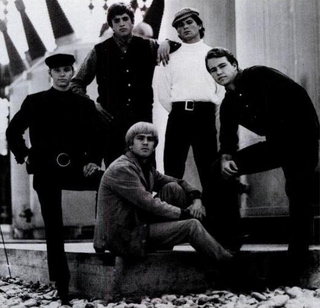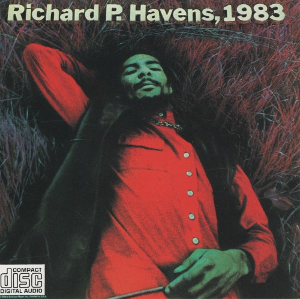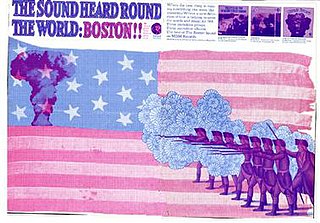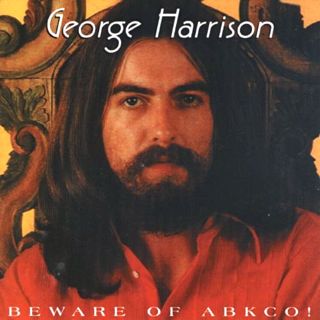
The Electric Prunes are an American psychedelic rock band, formed in Los Angeles, California, in 1965. Much of the band's music was, as music historian Richie Unterberger described it, possessed of "an eerie and sometimes anguished ambiance." Their most successful material was by songwriters Annette Tucker and Nancie Mantz, though the group also penned their own songs. Incorporating psychedelia and elements of embryonic electronic rock, the band's sound was marked by innovative recording techniques with fuzz-toned guitars and oscillating sound effects. In addition, guitarist Ken Williams' and singer James Lowe's concept of "free-form garage music" provided the band with a richer sonic palette and exploratory lyrical structure than many of their contemporaries.

"Norwegian Wood (This Bird Has Flown)", otherwise known as simply "Norwegian Wood", is a song by the English rock band the Beatles from their 1965 album Rubber Soul. It was written mainly by John Lennon, with lyrical contributions from Paul McCartney, and credited to the Lennon–McCartney songwriting partnership. Influenced by the introspective lyrics of Bob Dylan, the song is considered a milestone in the Beatles' development as songwriters. The track features a sitar part, played by lead guitarist George Harrison, that marked the first appearance of the Indian string instrument on a Western rock recording. The song was a number 1 hit in Australia when released on a single there in 1966, coupled with "Nowhere Man".
Psychedelic folk is a loosely defined form of psychedelia that originated in the 1960s. It retains the largely acoustic instrumentation of folk, but adds musical elements common to psychedelic music.

"Misery" is a song by the English rock band the Beatles from their 1963 debut album Please Please Me. It was co-written by John Lennon and Paul McCartney. According to Lennon, "It was kind of a John song more than a Paul song, but it was written together." McCartney was to say: "I don't think either one of us dominated on that one, it was just a hacking job."

"Shapes of Things" is a song by the English rock group the Yardbirds. With its Eastern-sounding, feedback-laden guitar solo and environmentalist, antiwar lyrics, several music writers have identified it as the first popular psychedelic rock song. It is built on musical elements contributed by several group members in three different recording studios in the US, and was the first Yardbirds composition to become a chart hit; when released as a single on 25 February 1966, the song reached number three in the UK and number eleven in the US.

"Let It Bleed" is a song by the English rock band the Rolling Stones. It was written by Mick Jagger and Keith Richards and is featured on the 1969 album of the same name, the first example of a Rolling Stones title track. It was released as a single in Japan in February 1970.
Ultimate Spinach was a short-lived American psychedelic rock band from Boston, Massachusetts which was formed in 1967. In terms of style and national recognition, the band was one of the most prominent musical acts to emerge from the "Bosstown Sound", which was a marketing campaign posing as a regional attempt to compete with the San Francisco Sound. During the group's existence, they released three albums, with their self-titled debut the most commercially successful.

"Heart Full of Soul" is a song recorded by the English rock group the Yardbirds in 1965. Written by Graham Gouldman, it was the Yardbirds' first single after Jeff Beck replaced Eric Clapton as lead guitarist. Released only three months after "For Your Love", "Heart Full of Soul" reached the Top 10 on the singles charts in the UK, US, and several other countries.

Lonestar is the debut studio album by American country music band Lonestar. Released in 1995 on BNA Records, it features five singles: "Tequila Talkin'", "No News", "Runnin' Away With My Heart", "Heartbroke Every Day", and "When Cowboys Didn't Dance", of which "No News" was a Number One hit on the Billboard country charts. The album has been certified gold by the Recording Industry Association of America for shipping 500,000 copies in the United States.

Once Upon a Dream is the fourth studio album by the rock band the Rascals, released February 19, 1968. The album rose to number 9 on the Billboard Top LPs chart and number 7 on the R&B chart.
Tinkerbells Fairydust were a British pop group in the late 1960s, who hailed from east London. They recorded three singles and one album for the Decca label.

Richard P. Havens, 1983 is a 1968 double album set by folk rock musician Richie Havens featuring a combination of studio recordings and live material recorded in concert during July 1968. The album combined original material with several of the covers for which Havens was known. Notable songs include the singles "Stop Pushing and Pulling Me" and "Indian Rope Man", the latter of which has been multiply covered under its own name and in retooled identity as "African Herbsman." The genre-bending album was critically and commercially well-received, reaching #80 on the Billboard "Pop Albums" chart. Initially released on the Verve label, it has been reissued multiple times in various formats, including by Verve subsidiary Verver Forecast/PolyGram and Australian label Raven Records. It has also been compiled with albums Mixed Bag and Something Else Again in multi-cd set Flyin' Bird: The Verve Forecast Years on the Hip-O Select/Universal label.

Evergreen, Vol. 2 is the second album from the Stone Poneys, released five months after The Stone Poneys. It was the most commercially successful of the Stone Poneys' three studio albums.

Wake Up...It's Tomorrow is the second album by the American psychedelic rock band Strawberry Alarm Clock, released by Uni Records in 1968. It came as the group was challenged with continuing the success of their debut single, the psychedelic classic and number one hit, "Incense and Peppermints" and the LP that followed. Their second effort would expand upon the arrangements of its predecessor's unique blend of vocal harmonies, psychedelia, and pop music. In addition, the band's atypical lineup, which featured two bassists, would be altered to address studio and performing issues.

"Just a Little" is a song by the American rock group the Beau Brummels. The song is included on the band's debut album, Introducing the Beau Brummels, and was released as its second single, following "Laugh, Laugh". "Just a Little" became the band's best hit parade U.S. single, which peaked at number eight on the Billboard Hot 100 in June 1965. It also reached no lower than position #10 of the hit parades in Canada and Australia.

H. P. Lovecraft II is the second album by the American psychedelic rock band H. P. Lovecraft and was released in September 1968 on Philips Records. As with their debut LP, the album saw the band blending psychedelic and folk rock influences, albeit with a greater emphasis on psychedelia than on their first album. H. P. Lovecraft II failed to sell in sufficient quantities to reach the Billboard Top LPs chart or the UK Albums Chart, despite the band being a popular act on the U.S. psychedelic concert circuit. Legend has it that the album was the first major label release to have been recorded by musicians who were all under the influence of LSD.

Behold & See is the second studio album by the American psychedelic rock band Ultimate Spinach, and was released on MGM Records in August 1968.

The Bosstown Sound was the catchphrase of a marketing campaign to promote psychedelic rock and psychedelic pop bands in Boston, Massachusetts, in the late 1960s. The concept was conceived by the record producer Alan Lorber as a marketing strategy intended to establish several underground musical artists native to the city on the national charts and compete with the popular San Francisco Sound. Lorber chose Boston for his plan because of the several bands developing in the city, the abundance of music venues, and the proximity of MGM Records, which had signed the core groups.

Beware of ABKCO! is a bootleg album of songs performed by English rock musician George Harrison in May 1970. It contains songs that were under consideration for Harrison's triple album All Things Must Pass, his first release as a solo artist following the break-up of the Beatles. The performances were taped in a single session at Abbey Road Studios in London, on 27 May 1970, for the benefit of Harrison's co-producer, Phil Spector. Seven of the fifteen songs were subsequently recorded formally for inclusion on All Things Must Pass, as was "Everybody, Nobody" after Harrison reworked it as "Ballad of Sir Frankie Crisp ". From its 1994 release by Strawberry Records, the bootleg provided the only available record of five songs that Harrison never revisited during his career. Among these is a 1968 collaboration with Bob Dylan titled "Nowhere to Go". All fifteen songs were officially released in August 2021, as part of the Uber and Super deluxe editions of the All Things Must Pass: 50th Anniversary box set.

Ultimate Spinach III is the third and final studio album by the American psychedelic rock band Ultimate Spinach, and was released on MGM Records in 1969.
















